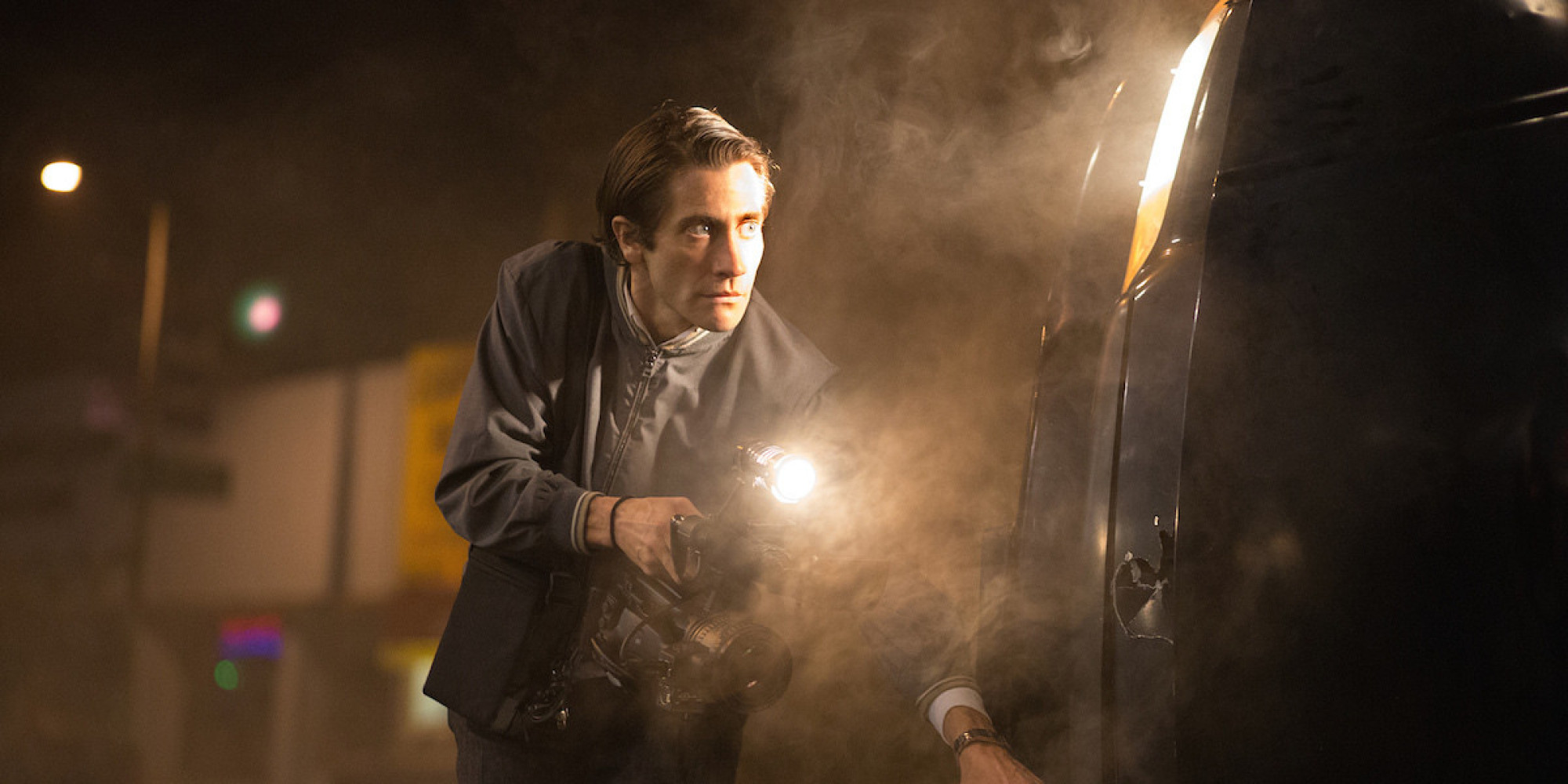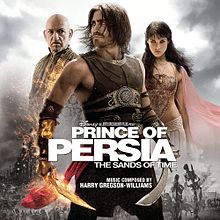Most people read or watch war stories not to peek into life but to get an intimate glimpse at death. The irony here is of course that the more anti-war a book or movie wants to be, the more likely it is that they it emphasize violence. It is almost as if a condition of a truly anti-war piece is that it provides voyeurs as much violence as they desire. So the honest war storywriter ends up creating excellent war porn for the would-be voyeur and directors as politically and aesthetically diverse as Stephen Spielberg, David Ayers and Clint Eastwood compete with each other to reveal war’s obscenity to an audience eager for the obscene.
Though not a war story, Nightcrawler, Dan Gilroy’s directorial debut, contemplates a problem central to war stories: namely, the cultural appeal of violence and the authorial exploitation of obscenity. And by subverting our expectations surrounding violence, art and success, Gilroy’s manages to successfully satirize both an audience that consumes violence and the people who orchestrate this consumption without – as is the case in some comparable projects – resorting to the same exploitation he decries. Would-be tellers of war stories could learn a lot from a movie like Nightcrawler.
The plot is simple enough: Louis Bloom – played by an emaciated and bug-eyed Jake Gyllenhaal – evolves from a Los Angeles bottom-feeder who steals copper to sell for a little money to a Los Angeles bottom-feeder who steals the last moments of people’s lives to sell for a little more money. It is a classic American success story, where a young man or woman harnesses a unique skill set to make friends and influence people. Except in this instance the hero succeeds by filming people in extremis, artfully recording hemorrhaging bodies and eventually arranging their deaths to keep up with the audience’s insatiable demand for such theater.
Many movies have explored the corrupting influence of money and violence and the way in which American culture uniquely intertwines the two (and not a few have used Los Angeles as their setting). The satire comes not in Bloom’s rise to prominence but in the very ridiculousness of his conquests. As opposed to movies like Wolf on Wall Street, where the rise and fall is dramatic enough to elicit envy in the audience, Gilroy scales Nightcrawler back to reflect the banality of Bloom’s efforts and achievements. Bloom counts himself a success because he owns a business with two trucks instead of one. He considers shaking hands with a third-rate newscaster tantamount to fame. He falls for a failed news producer twice as old as him who he has to blackmail into having sex with him. Bloom is a petite-bourgeois devil, one whose success is as pathetic as what he has to do to achieve it.
Neither does Bloom have any sense of having done wrong. Early on in the film Bloom sits alone in his empty yet tastefully furnished apartment and clicks through the morning TV news shows. He laughs at the newscaster’s corny jokes unaffectedly. In the film’s final moments, the detective investigating Bloom can’t get past the fact that Bloom filmed his friend dying. Bloom replies, “It’s my job. It’s what I do. I like to think if you’re seeing me you’re having the worst day of your life.” Bloom’s laughter remains the same – innocent as it is amoral. Here and elsewhere, the film lacks any dynamism, either into cynicism or away from it, and the static characterization, Bloom’s resolute innocence, survives his ethically questionable activities unscathed, even as the more and more people end up on the wrong side of his camera.
In the climax, we do learn something important about Bloom: it’s not that he doesn’t understand people, it’s that he understands them and discounts their reality. “Maybe I just don’t like people,” he tells his partner. Throughout the film he makes seemingly earnest attempts to mimic human emotion – patting his assistant’s shoulder after they see someone they know die, giving self-help talks to the people that he meets, “Who am I? I’m a hard worker…people say I am persistent” – and the sad fact of the movie, the central conceit, is not that Bloom is a joke but that everyone in the film ends up being like Bloom; ultimately, we must take him seriously, for this is what passes for seriousness in our society – his grotesque films and entrepreneurial optimism are the only art and hope in an artless (indeed kitsch and sentimental) world.
Gilroy seems to be saying that Bloom dislikes us, the people who watch his videos, who form the literal fodder for his ambitions, but we watch these videos because we dislike people as much as him. In this respect Nightcrawler is not quite like other satires of American masculinity, violence and terror (like say American Psycho or Fight Club). Nightcrawler satirizes these movies. It critiques our rabid consumption of violence in movies that seek to make an earnest commentary about violence in America. It mocks us for desiring this violence, for wanting to indulge in death while simultaneously acting sententious about those who indulge in death (tellingly, Gilroy gives us little actual obscenity in a movie about obscenity). At times the plot stumbles – Gilroy has too many targets for a single film – but the movie does better than most in capturing this curious tension between indulgence and opprobrium, between our own self-involved fears and nihilistic desires.
Now what does this have to do with war stories? Well, a lot actually. Most war stories over the last forty years have been obsessed with representing the true obscenity of war; they operate under the notion that realism – a faithfully rendered account of horror – somehow does justice to the conflict. Many of these stories try to abrogate politics through authenticity and eventually mistake obscenity for profundity. Bloom and the people around Bloom rationalize his snuff films in much the same way. In a way, Bloom gives the dying people dignity, by acting as a sort of witness to their final moments. The audience participates willingly, possessed by fear and hatred, projecting themselves on to the dead, forgiving this invasion of privacy and sadomasochistic prurience under the auspices of aesthetics.
Fury has been in theaters for about a month now. American Sniper will soon follow (timed perfectly to capture the coveted January demographic). These Christmas films have gone through great lengths to be accurate, to replicate the obscene violence of 1944 Europe and 2006 Iraq. Many will argue that it is possible to watch them simply out of respect for authentic death, not to find a sense of authenticity through this death. Yet after a movie like Nightcrawler, it is increasingly difficult to make the claim that we can do the former without also indulging in the latter, and perhaps this all movie about American violence can do – open us up to the nightcrawler in each of us, the ones making these films and the ones who keep going to see them.
________
Michael Carson has written non-fiction about war and violence at Salon, the Daily Beast, The Hooded Utilitarian and Splice Today. He also attempts to write fiction that neither indulges in obscenity nor sanitizes the obscene. So far he has been unsuccessful. Check out his blog, the Wrath Bearing Tree, or follow him @WrathBT on Twitter.


